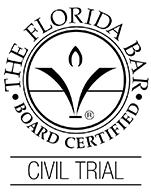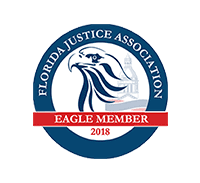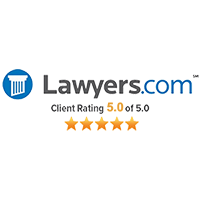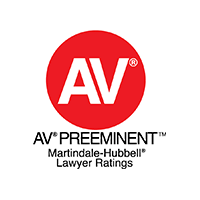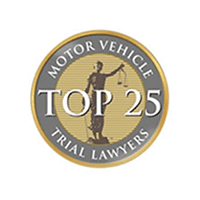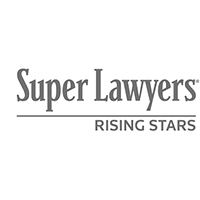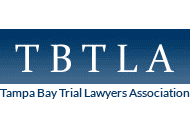Understanding Premises Liability in Florida
When visiting another’s property, you have the right to leave as you came: uninjured. Yet, you may have grounds for a claim or lawsuit if you suffer injuries because of a hazard. These are referred to as premises liability cases, and they aim to offer compensation for injuries suffered by invitees, visitors, social guests, and even trespassers.
Dismuke Law offers full legal advocacy for injured claimants like yourself. A Lakeland personal injury lawyer from our firm can investigate your accident, calculate your losses, and file your claim. You can learn more about your options during a free case review with one of our team members.
Expect Nothing But the Best From Our Lakeland Premises Liability Team
Premises liability cases can be highly complex. Even establishing your case’s basics can prove complicated. Yet, our Lakeland premises liability lawyers understand Florida statutes and case law on these matters. We can identify the property owner’s liability and manage everything your case requires from start to finish.
We Manage All Types of Premises Liability Cases
Dismuke Law has served the residents of Southwest Florida for nearly 20 years. We take on premises liability cases involving:
- Slip and fall accidents
- Trip and fall accidents
- Elevator and escalator accidents
- Negligent security personnel
- Inadequate security measures
- Swimming pool accidents
- Dog attacks
Today, you can learn about partnering with a premises liability attorney in Lakeland, FL.
We Have the Skills Required to Prove Your Premises Liability Case
If you suffered injuries on someone else’s property and wish to pursue a premises liability case, we must prove that they acted negligently. We must establish:
- The party who owned the property was responsible for lawful guests’ well-being.
- The at-fault party allowed hazards to go unaddressed on the property. These dangers can include aggressive dogs, slippery flooring, and dim stairways.
- You suffered injuries.
- You have damages resulting from the injuries.
We use evidence to support your claim. This information may include the police report, security camera footage, and eyewitness testimony.
Our Past Successes Speak Volumes about Our Commitment
At Dismuke Law, we’re proud of the results we’ve achieved for injured claimants like yours. Here are some of our stories:
- Our client gave us a call after the liable insurance company denied their claim. By conducting a thorough investigation, we secured a $785,000 settlement.
- The dangerous extraction of a tree stump led to serious injuries for our client. As with the case above, the liable insurance company offered nothing. Yet, we recovered more than $320,000 in damages.
- Our client slipped and fell in a puddle while visiting a property near Lakeland. We found that the property owner had prior knowledge of the hazard yet did nothing to address it. We won $200,000 through a negotiated settlement.
We can’t guarantee an outcome to your case like those listed above. Still, our premises liability lawyers aim to do everything possible to resolve your case.
The Differences Between Invitees, Licensees, and Trespassers
Property owners must keep safe premises for:
Invitees
Invitees, who enter the property because the landowner extended them an express or implied invitation are owed the highest standard of care. These include business customers, invited house guests, hotel guests, and apartment tenants.
An owner owes a higher duty of care to an invitee because they have invited that person on to their property and typically stand to gain something from their presence.
When dealing with invitees, a property owner is responsible for exercising reasonable diligence in spotting and correcting issues on the property that could put guests in harm’s way. If the issue cannot be immediately corrected, they must make guests aware of the present danger.
Licensees
Licensees are permitted to be on the property for their own benefit, not for the owner’s benefit. For example, if you owned land in a rural area and allowed someone else to hunt or fish there, then that person would be considered a licensee.
Since a licensee is on the owner’s property for their own benefit, they are not owed the same standard of care. While owners are still obligated to make licensees aware of known hazards, they are not specifically expected to inspect the property for dangers before allowing licensees to enter.
Trespassers
When it comes to trespassers, they are owed a much lower duty of care than invitees or licensees. Property owners are not held liable for injuries sustained due to unsafe conditions.
However, owners are not allowed to intentionally cause unnecessary harm to trespassers by setting up “traps” or things of that nature. Property owners can defend themselves if a trespasser presents an imminent threat, but they are not permitted to harm the intruder simply for intruding.
Learn About Partnering With a Premises Liability Lawyer in Lakeland, FL
If you’re looking for a lawyer in Lakeland who can secure compensation for your losses, you’ve come to the right place. Our injury firm handles these cases from beginning to end, stopping at nothing to recover what you need. Today, you can start a free case review.


![cftla-member[2]](https://www.1800askdave.com/wp-content/uploads/2022/03/cftla-member2.png)
![cftla-member[3]](https://www.1800askdave.com/wp-content/uploads/2022/03/cftla-member3.png)

